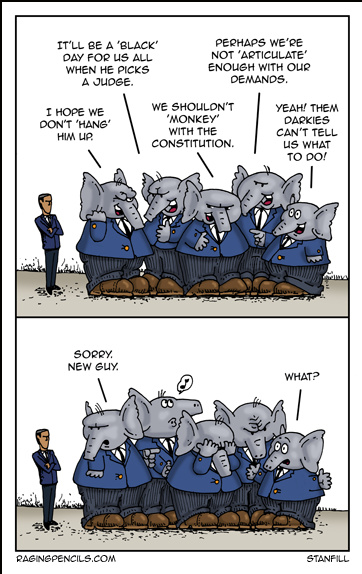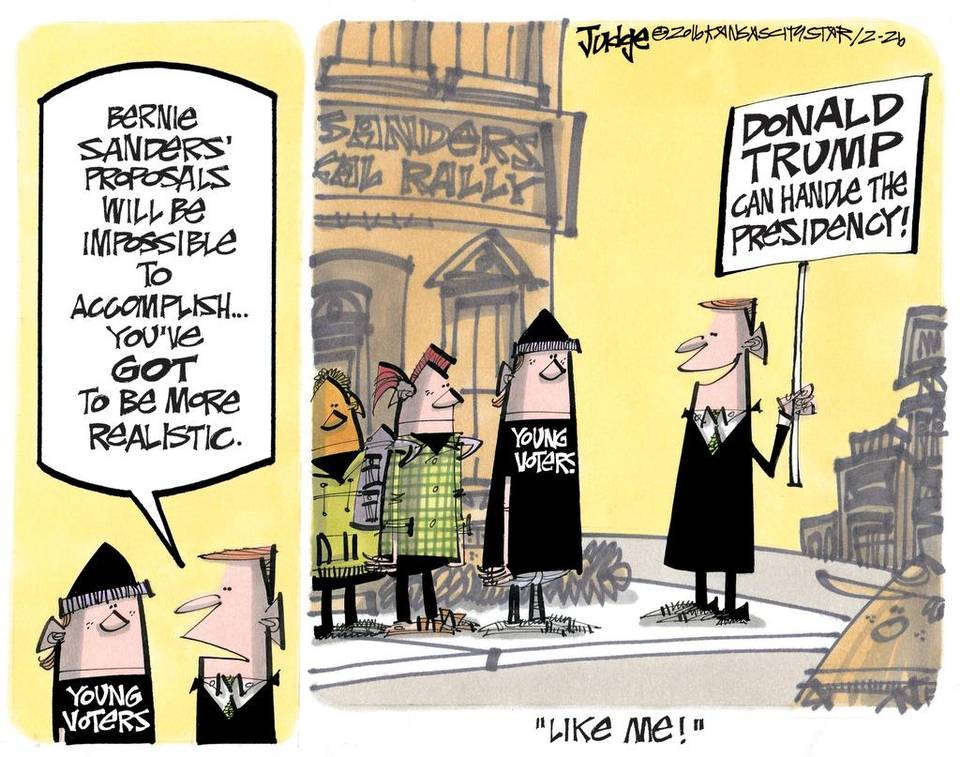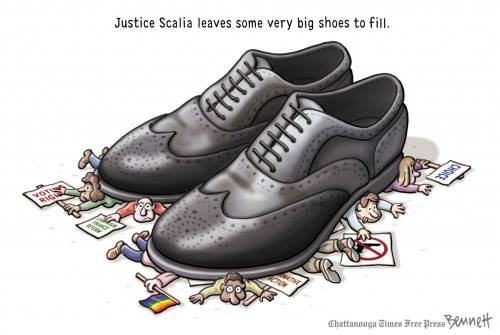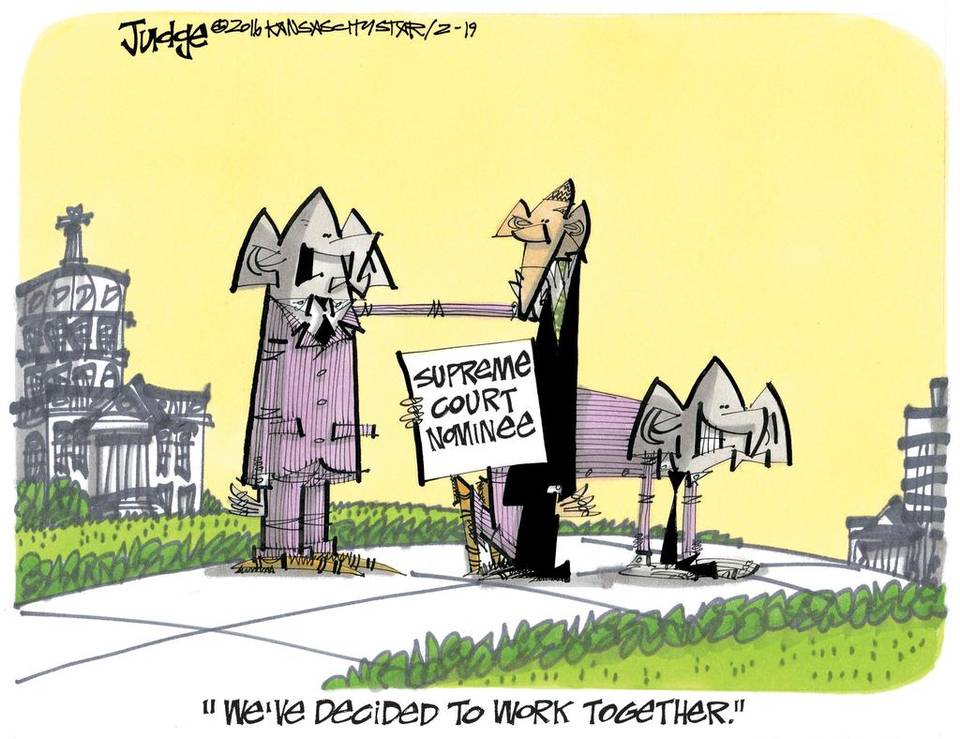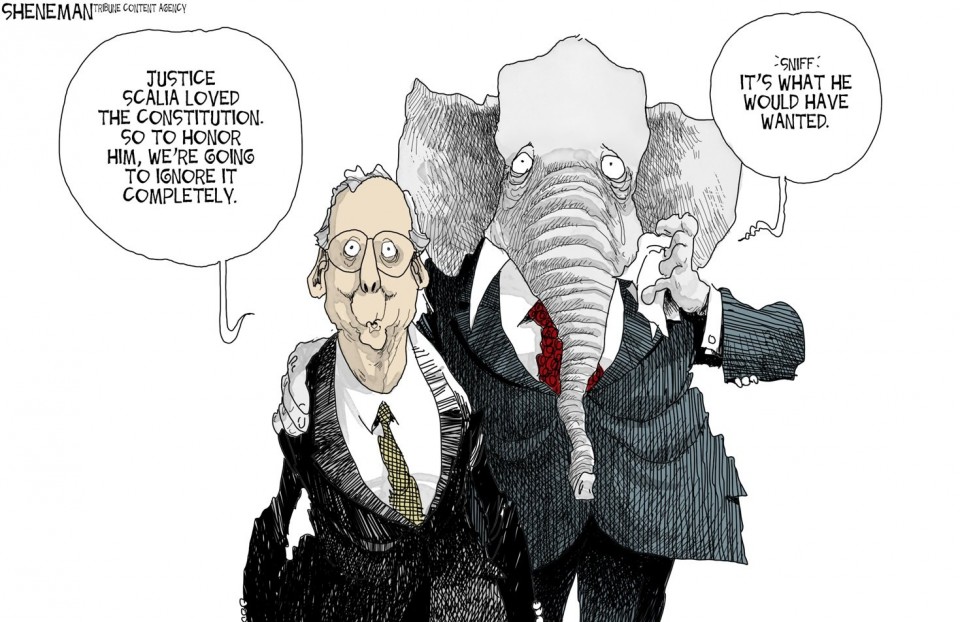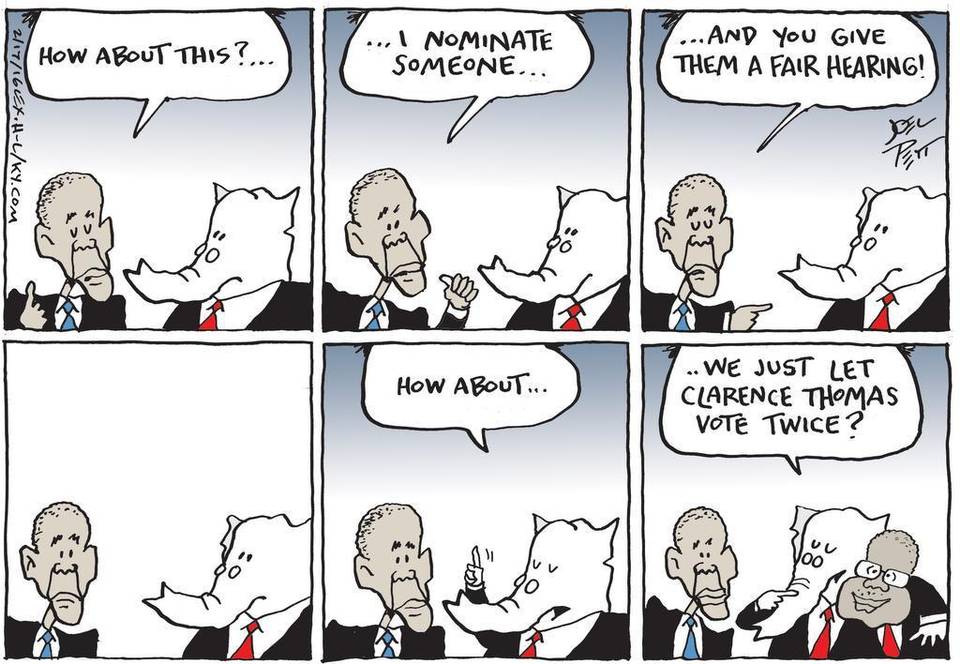Yesterday was Super Tuesday. The results will tell us lots about the state of the Democratic Party, but despite the outcome on Tuesday, Democrats have a variety of issues worth thinking about heading into the general election this November. In this primary cycle, Democratic primary voters just aren’t showing up. Democrats in 2016 primaries are only voting at two-thirds of the rate that they did eight years ago. All told, about 1.18 million Democrats across those first four states went to the polls in 2008. Just under 870,000 showed up this time. That’s 26% fewer voters engaged.
But, you’d think that Sanders, who’s message is a political revolution, could energize the disaffected in great numbers, but it just hasn’t happened. Perhaps it is the right message, but the wrong messenger. And no evidence of a “political revolution.”
Yet Trump is doing just that. GOP turnout in primaries is up 24% over 2008. It is a safe bet that if The Donald is the GOP nominee, there will be a big Republican turnout in November.
There are other concerns: With the Sanders vs. Clinton contest, the Democratic Party is also at risk of imploding, right along with the GOP in its tussle with Trump.
Sanders is seen as unusually honest for someone who’s been a politician for much of his life, and he advocates a refreshingly anti-establishment view on core issues that matter to an increasing number of Americans. These include American militarism, Wall Street bailouts, a two-tiered justice system, the prohibitive cost of college education, healthcare insecurity and a “rigged economy.”
OTOH, Hillary is committed to a third Obama term and incremental change. She has been forced by Sanders to move left, and is paying lip service to some of his issues. Once the general election season begins, it is likely that Hillary will be the candidate for America’s political status quo, vs. the radical alternative of Donald Trump.
Bernie’s supporters understand this, and may or may not go compliantly into the voting booth to elect Hillary, despite the terrifying prospects of a Trump presidency.
Tea Party Republicans understand that the GOP Establishment offers them little. And more and more rank and file Republicans have come to the same conclusion, which is precisely why the GOP nomination is now Trump’s to lose.
Democrats are teetering on the same precipice. The Dem Establishment, this time represented by Hillary, offers weak tea. The Sanders wing could easily sit this one out, and by late summer, when polls show that Hillary is in a death struggle with a political novice, political pundits will be tripping over each other to write about the death of the Democratic Party.
Democrats are in a bind. They want progressive politics, but offered by an Establishment leader.
Dems are always looking for that. In 2008, they selected Obama because he represented change and empowerment for average people over Hillary, the Democratic Establishment candidate. People wanted something new and different. Obama’s presidency wasn’t a failure, unless Democrats accept nothing less than ideological purity from their presidents.
Or, look back at recent presidential elections. Oh the glee among Democrats in 2001 when GWB won the nomination. It was gonna be a cakewalk for Mr. Democratic Establishment Al Gore. Gore did win the popular vote, but lacked an influential brother in Florida. With Establishment candidate John Kerry in 2004, his vote for the Iraq war was his downfall. How do you run successfully against an incumbent when you agreed with the incumbent’s major disaster? Saying you were “for it before you were against it” was an epic fail. Kerry never figured that out, and lost.
The 2008 election was easy for not-quite Establishment Obama, since the GOP was badly wounded by the GWB administration and GOP Establishment McCain lacked the personal horsepower to defeat him.
If 2016 is an Establishment Clinton v. an anti-establishment Trump, some of the Establishment GOP may choose sit it out. There is a small possibility they could go full anti-McGovern, as Establishment Dems did in 1972. If anti-establishment Sanders is the nominee, the GOP Establishment will find a way to make a deal with Trump, and the Dem Establishment probably won’t do enough to prevent Sanders from losing.
If the US economy hits a rough patch before November (and there are several reasons to expect that), Clinton as the Establishment nominee could be dead meat. Sanders, OTOH, could end up a stronger candidate because of it. We also need to remember that Donald Trump is not an ideologue. He brings no core convictions to the table, other than ego, so he will continue to say whatever works with his fans.
Will a Trump win kill America? That depends on whether our country’s immune system, that body of informed citizens who are engaged, and who bother to vote, can effectively fight the infection.



